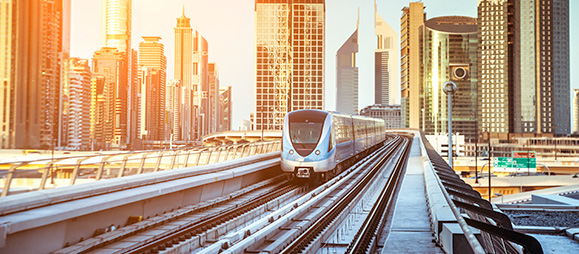The global Hybrid Train Market size is projected to reach 8,389 units by 2030, from an estimated 4,904 units in 2020, at a CAGR of 5.5%.
OEMs are working toward developing hybrid trains that use or combine alternative fuel sources, such as hydrogen fuel cells, electric batteries, CNG, LNG, and solar energy, to meet the required efficiency and emission standards. The market has promising growth potential due to several factors, including the improving railway infrastructure, supporting legislation, increasing demand for efficient trains in freight as well as passenger segment, and rising trend of alternative fuel-powered propulsion systems.
The hybrid train market is dominated by established players such as CRRC (China), Bombardier (Canada), Alstom (France), Siemens (Germany), Wabtec Corporation (US), Hyundai Rotem (South Korea), Toshiba (Japan), and Stadler (Switzerland).
Opportunity: Government support for alternative fuel-powered railway operations
The increasing focus of government bodies across the globe on the adoption of emission-free public transport modes, including railway operations of passenger and freight transport, might create an opportunity for OEMs to develop more hybrid trains that are compliant with emission standards. Although railways are not the biggest source of air pollution as far as public and freight transport mediums are considered, opting for hybrid trains will significantly reduce the emission levels caused by conventional diesel trains. Also, hybrid trains are low on operating costs, which will save money for governments as well. Many governments have recognized the need for it, and thus, are acting toward achieving it. For instance, in 2018, the Indian government approved the proposal of 100% electrification of trains in the country by 2022, which will save the Indian Railways around 2.9 billion liters of diesel annually. The government also claimed savings of around INR 13,510 crore (~USD 1.9 billion) annually by 100% electrification. The UK government will be phasing out trains that run solely on diesel fuel by 2040. As of 2018-19, around 29% of total trains in the UK are operated only on diesel; thus, the decision to phase these out will create a huge opportunity for hybrid train manufacturers in the future.
Request FREE Sample Report @ https://www.marketsandmarkets.com/requestsampleNew.asp?id=238438631
The electro-diesel segment is expected to be the largest propulsion segment in the forecast
The electro-diesel segment is projected to be the largest during the forecast period. These trains are the most popular, and OEMs have been offering hybrid propulsion technologies incorporated with these diesel trains for a while now. This type of propulsion is more efficient than diesel locomotives as electro-diesel propulsion is efficient and 40% less polluting than conventional ones. They offer the optimum performance of conventional diesel as well as get power from the overhead wires or battery whenever necessary. As of 2020, many OEMs such as CRRC, Bombardier, Siemens, and Hyundai Rotem offer such electro-diesel trains.
The hydrogen segment is expected to be the second-fastest propulsion segment in the forecast.
Many industry experts are looking at hydrogen fuel cell-powered trains as truly emission-free, noise-free, and efficient trains. In the case of fuel cell-powered trains, the condensed water and steam generated are the only exhaust elements from the operation, making it completely clean and environment-friendly. Recent developments also indicate that majority of the train manufacturers have identified this and are focusing on developing and testing hydrogen fuel cell-powered trains across the world. Manufacturers are introducing different trains, trams, and locomotives working on hydrogen fuel cells. For instance, Alstom with Eversholt Rail introduced the first hydrogen fuel cell-powered train in Germany in September 2018, which has been running successfully. Also, at the end of 2019, Foshan city, China, deployed a hydrogen fuel cell-powered tram jointly developed by CRRC Qingdao Sifang and Ballard Power Systems.
The Asia Oceania hybrid train market is projected to hold the largest share by 2030
Asia Oceania is projected to account for the largest share of the hybrid train market during the forecast period as it is home to renowned hybrid train manufacturers such as CRRC, Hyundai Rotem, and Toshiba, which offer advanced solutions in the region as well as all over the world. The Chinese and Indian railway industries are the prime reasons why the region is leading the global hybrid train market. These countries have a large and dense railway network, and they are trying to promote eco-friendly trains as well. Thus, the growing sales of electro-diesel trains in these countries will be driving the market in Asia Oceania. Japan and South Korea have developed, tested, and deployed some advanced hybrid trains. For instance, JR East, the largest passenger railway company in Japan, is planning to develop and test new hydrogen fuel cell-powered electric trains at the beginning of 2021. Apparently, the company will be spending around USD 37 million for the testing.
Speak to Analyst @ https://www.marketsandmarkets.com/speaktoanalystNew.asp?id=238438631
North America is expected to be the fastest-growing market during the forecast
The North American hybrid train market is expected to be the fastest. The region is home to Bombardier, Wabtec, and Cummins, which are among the major players in the hybrid train market. The growth in the region can be attributed to the increasing demand for hybrid trains in freight transportation. For instance, BNSF and Wabtec are getting ready to test their much-awaited 4,400 HP battery-electric locomotive, which has been under development since 2018. The testing is expected to begin in the last quarter of 2020. It is the first hybrid locomotive test for BNSF as its main-line freight transport. Also, in November 2019, San Bernardino County Transportation Authority (SBCTA), US, awarded a contract for a hydrogen-powered train to Stadler. It is the first hydrogen train contract in the country, and the train is expected to commence operations by 2024.
Media Contact
Company Name: MarketsandMarkets
Contact Person: Mr. Aashish Mehra
Email: Send Email
Phone: 18886006441
Address:630 Dundee Road Suite 430
City: Northbrook
State: IL 60062
Country: United States
Website: https://www.marketsandmarkets.com/Market-Reports/battery-raw-materials-market-866.html

